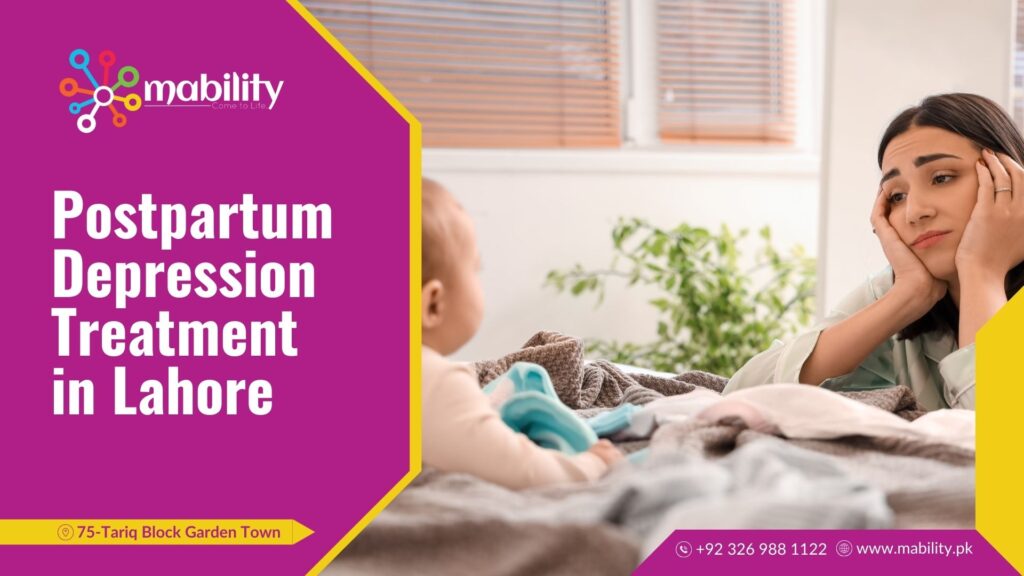
Postpartum Depression Treatment in Lahore
Before discussing, postpartum depression treatment in Lahore Let me tell you about it. Postpartum depression (PPD) is a type of mood disorder that affects women after childbirth. It typically presents within the first few weeks to months following delivery, although it can occur anytime within the first year postpartum. PPD is characterized by feelings of sadness, anxiety, irritability, and exhaustion that can interfere with a woman’s ability to care for herself and her baby.
Here are some key aspects to understand about postpartum depression:
Symptoms:
The symptoms of postpartum depression can vary in severity but commonly include feelings of sadness, hopelessness, and emptiness, as well as loss of interest in activities once enjoyed. Other symptoms may include changes in appetite or sleep patterns, difficulty bonding with the baby, feelings of guilt or worthlessness, and thoughts of harming oneself or the baby.
Causes:
The exact cause of PPD is not fully understood, but it is likely influenced by a combination of hormonal, biological, and psychosocial factors. Hormonal changes that occur during and after pregnancy, along with the physical and emotional stress of childbirth and caring for a newborn, can contribute to the development of PPD. Additionally, factors such as a personal or family history of depression, inadequate social support, and stressful life events can increase the risk of PPD.
Impact:
Postpartum depression can have significant consequences for both the mother and her baby. It can interfere with maternal-infant bonding and negatively impact the mother’s ability to care for her child. PPD can also affect the mother’s overall well-being, leading to decreased quality of life and impaired functioning in various areas of life.
Treatment:
Treatment for postpartum depression typically involves a combination of psychotherapy, medication, and support from healthcare professionals, family, and friends. Cognitive-behavioral therapy (CBT) and interpersonal therapy (IPT) are commonly used forms of psychotherapy that can help women manage symptoms and develop coping strategies. In some cases, antidepressant medications may be prescribed to alleviate symptoms of depression
Prevention and Support:
While it may not be possible to prevent postpartum depression entirely, there are steps that women can take to reduce their risk, such as maintaining a healthy lifestyle, seeking prenatal care, and building a strong support network. It’s also important for healthcare providers, family members, and friends to be aware of the signs of PPD and offer support and assistance to women who may be experiencing it.
Overall, postpartum depression is a serious condition that requires attention and treatment. With appropriate support and intervention, most women with PPD can recover and resume their normal daily activities.
TREATMENT FOR POSTPARTUM DEPRESSION IN LAHORE:
Postpartum depression Treatment in Lahore at Mability offers personalized care to empower new mothers. Our therapies and support groups aid in recovery and holistic healing. Reach out to us for compassionate support and guidance on your journey to well-being.
Contact 𝐌𝐚𝐛𝐢𝐥𝐢𝐭𝐲 today to explore how we can make a positive impact.
𝐁𝐨𝐨𝐤 𝐚𝐧 𝐀𝐩𝐩𝐨𝐢𝐧𝐭𝐦𝐞𝐧𝐭
𝐂𝐚𝐥𝐥 𝐍𝐨𝐰: 𝟎𝟑𝟐𝟔 𝟗𝟖𝟖 𝟏𝟏𝟐𝟐
